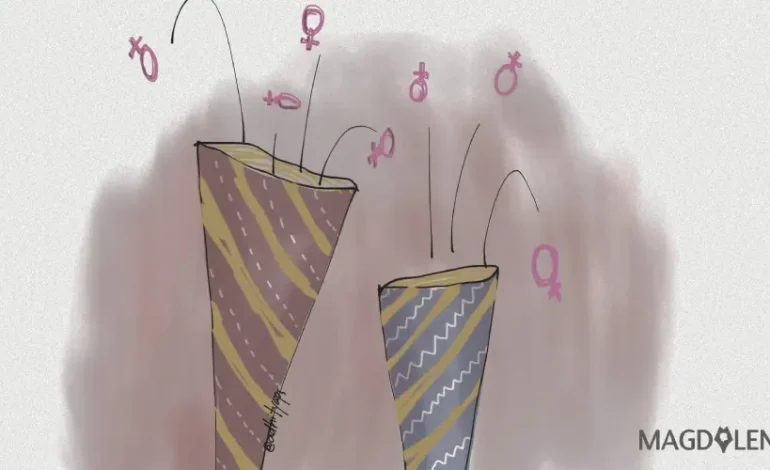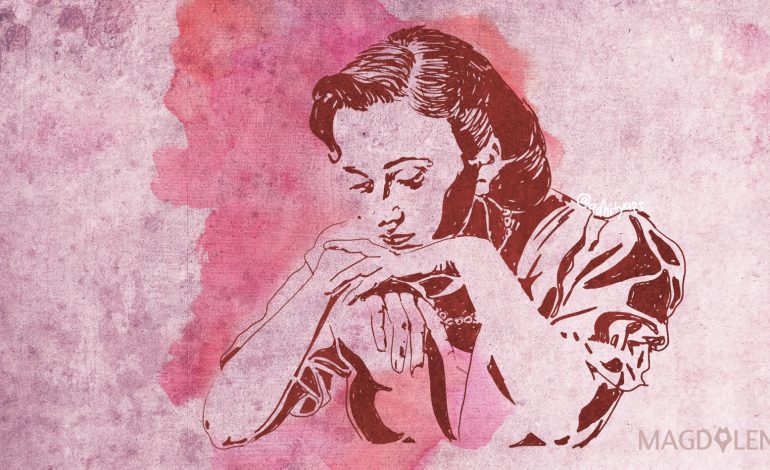The Feminist New Year’s Resolution
This year, let the spirit of feminism permeates your New Year's resolution.

A few weeks ago, the internet and social media were flooded with` cute and heart-warming messages of Mother’s Day celebration. You can bet that most of the people who posted (or reposted) the Mother’s Day greetings did not even know the real story behind it. Now that the spirit of the new year is still around, why don’t we take a step back towards history to embrace a better future for women?
It all began in 1959 when the commemoration date of Mother’s Day or Hari Ibu was officially inaugurated by President Soekarno through a Presidential Decree during the 25th anniversary of Indonesian Women Congress in December 22nd. The congress was first held in Yogyakarta in 1928. Since the beginning, the term “Ibu” in “Hari Ibu” did not refer to only mothers but to women in general, given the nature of the congress itself.
The outcome of the congress was impactful enough to provide the fundamental basis of the modern Indonesian women’s rights, especially regarding education, women’s rights and marriage. But one thing that I find bizarre is that the attendees were male-dominated, pretty much the same situation as the current leadership and political world in any country around the globe.
Contemplating the development of women’s rights in Indonesia since then, it is safe to say that the challenges faced by Indonesian women nowadays are arguably different even if some similar issues are still present.
The values and causes outspokenly advocated by modern feminist movements and human rights activists are much more diverse, covering gender equality, sexual and reproductive health rights, women’s economic and political rights, protection of women migrant workers, women’s and girls’ protection against sexual harassment and violence, and so on.
The number of civil society and local community supporting the issue has gone through the ceiling in the last decade. Yet, Indonesia still has a lot more homework to do.
Challenges for Indonesian women
Still fresh in our mind are the gang-rape cases of underage high school girls in Luwu and Bengkulu, the sadistic sexual assault in Kosambi or the more recent unlawful persecution of a couple in Cikupa. The newest case that caught the storm right on the very first day of 2018 was the femicide of a vocational high school student in Pontianak by his ex-boyfriend because of jealousy.
While those cases received media coverage and the nation’s full attention, thousands of similar cases are still left undocumented or even buried while unreported.

Another issue is the prevalence of gender inequality in various fields. The low representation of Indonesian women in politics, limited number of women’s participation in the labor force, cultural belief regarding women’s restricted role in the society, stereotypes of women who do not comply with the societal standards and traditional norms – those examples are only the tip of the iceberg of challenges faced almost daily by Indonesian women.
Remember the last time you walk around the corner without being catcalled by a group of young men? Or the last time an online article talks about the achievement of women figures without putting “beautiful” or “sexy” as qualifiers? I don’t.
Even being 7-months pregnant and wearing a hijab doesn’t make me feel safe: the fact that there could be any preggophile and pedophile groups around haunts me as a future mother. Their twisted patriarchal belief, mental issues and fetishism are the worst combination after all.
Promoting Women’s Rights in the Society
Without doubt, national and regional legal framework plays an important role to ensure the establishment of a safe and supportive environment for women. However, the issue of women’s rights is a dynamic and complex one. It requires full action, more than a mere formality and this should be one of the top priorities of every feminist’s new year’s resolution.
Society needs to hold on to their powerful weapon to promote and to advocate the importance of women’s rights: people’s voice.
Against the archaic patriarchal perception that women’s position is beneath men’s, it is necessary for both women and men to have an open dialogue with the spirit of feminism. Both women and men have an equal share of moral responsibility to speak up against violation of women’s rights because women’s rights are human rights.
I believe that human rights advocacy can be implemented as early as possible in any familial, social, academic and even professional environment. It can begin with a simple talk between parents and children about how girls and boys are born equal and have equal rights.
So, back to the spirit of Mother’s Day, it is not only about celebrating the valuable and noble role of a mother in the family. It has a much deeper meaning and a wider impact for the society. It represents how Indonesian women struggle throughout their life not only for their own rights, but also for their mother’s and their daughter’s rights. That’s the spirit that should be engraved in every modern Indonesian girls and women.
One of Margaret Thatcher’s saying that I always remember is “If you want something said, ask a man; if you want something done, ask a woman”.
If you believe that you have the power to change things this year, then you certainly will.
Nadya Noor Azalia is an education consultant and activist. She is a young expecting mom, studied law in France & Turkey, worked in several international NGOs and LL.M Human Rights Candidate at the University of Edinburgh. Follow Nadya Noor Azalia on LinkedIn; and @ndynna on Instagram.












